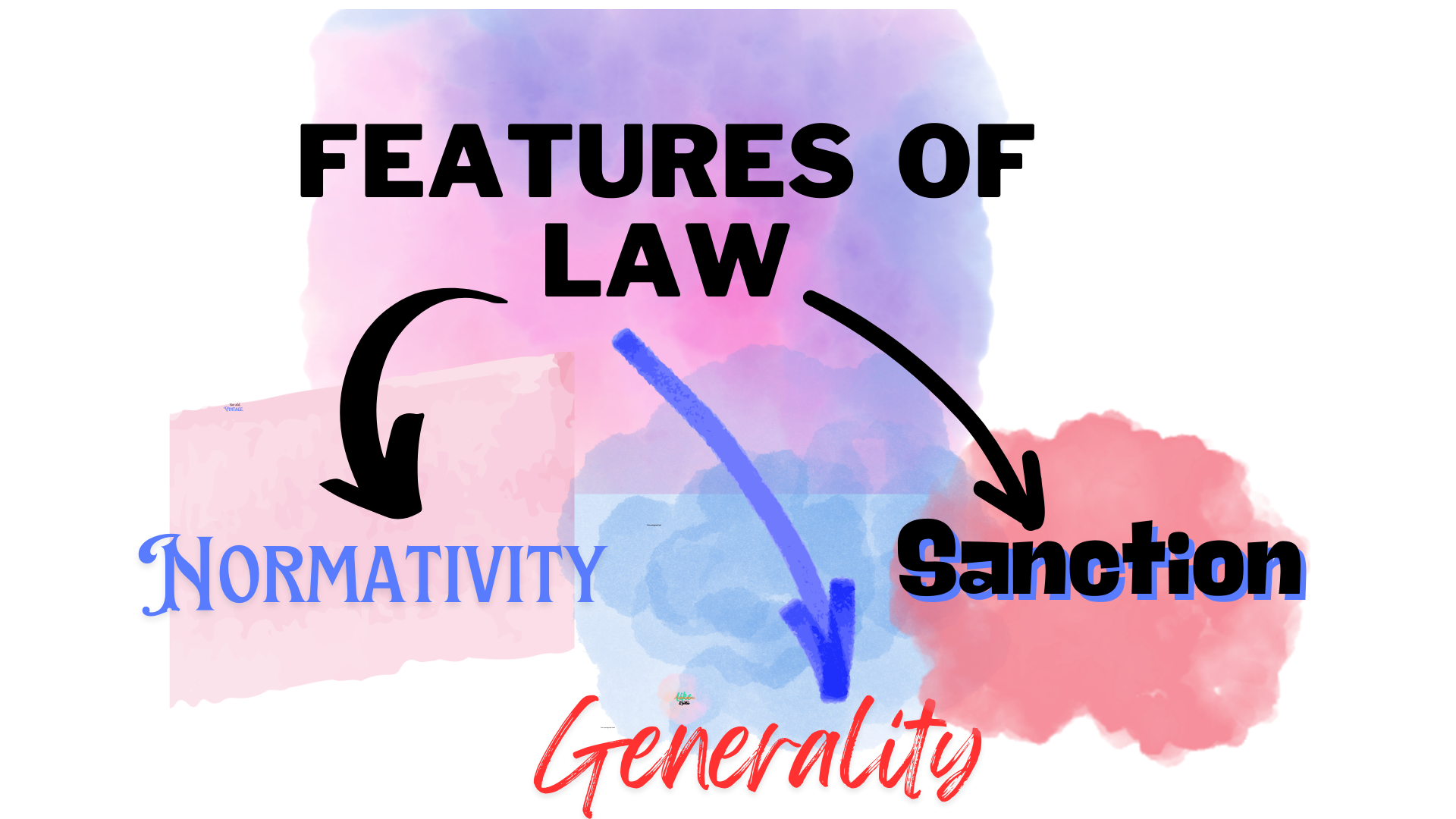Features of Law

Features refer to “the unique qualities or characteristics that something possesses”. Understanding the foundational features of law is essential for grasping the concept. The characteristics that are universally inherent to all legal systems include generality, normativity, and the presence of sanctions. These elements are crucial in defining the nature and function of law within society.
(1) Generality of Law
The concept of generality in law underscores the principle that legal provisions are designed to be universally applicable, extending their reach to all individuals within a jurisdiction without discrimination or specificity. This foundational aspect ensures that laws serve as broad guidelines for regulating human conduct across a wide spectrum of activities and societal behaviors, irrespective of individual identities or characteristics.
For instance, the Somali Penal Code, through Article 299, exemplifies this principle by prohibiting advocates or technical advisers from betraying their professional obligations, thereby safeguarding the interests of the parties they represent in judicial proceedings. Violation of this provision subjects the offenders to penalties, including imprisonment ranging from one to three years and a minimum fine of Sh. So. 5,000,000 (Five million Shillings). This example illustrates the law’s impartial application to individuals within the professional domain, emphasizing the principle of accountability and ethical conduct.
Similarly, the Somaliland Constitution reinforces the concept of generality in its Article 8(1), which mandates equal rights and obligations for all citizens of Somaliland without prejudice based on color, clan, birth, language, gender, property, status, and opinion, among other things. This clause highlights the law’s broad applicability and its role in fostering a just and equitable society by ensuring that all citizens are subject to the same legal standards and protections.
The above-mentioned examples from the Somali Penal Code and the Somaliland Constitution illustrate the law’s inherent generality, demonstrating its role as a universal framework for guiding behaviour and establishing a cohesive legal and social order. By applying universally across diverse demographics and behaviors, the law embodies the principle of equality before the law, ensuring that its provisions are relevant and enforceable across the entirety of the population it governs.
(2) Normativity of Law
Laws are vital in guiding people’s actions and preventing wrongful behaviour. Normativity is “the process of establishing standards or norms of behaviours.” It serves that laws should align with the values upheld by society and reflect its norms to promote justice and ensure fair treatment for everyone. Hence, the law reflects society’s moral and ethical values by identifying permissible actions, mandating certain behaviours, or prohibiting others, thereby highlighting the law’s normative feature.
Depending on its nature, the law can be categorized as permissive (allowing or permitting certain acts), directive(mandating specific actions), or prohibitive (forbidding certain behaviours).
(3) Sanctions within the Law
The enforcement of legal norms is achieved through sanctions, necessitating adherence to the established laws within a society. According to Black’s Law Dictionary (Garner; 2004: 1368), a sanction is defined as “a punitive or coercive measure imposed as a result of failing to adhere to a legal requirement”. The primary objective of imposing sanctions is to encourage compliance and rectification of wrongful acts by the offending party, thereby fostering a sense of accountability. Sanctions, particularly criminal sanctions, attach liability to criminal acts as defined by law, ensuring that offenders are subject to the corresponding penalties stipulated in criminal legislation.
In summary, the essence of law is encapsulated in its generality, normativity, and enforcement mechanisms through sanctions. These features collectively contribute to the law’s capacity to regulate human conduct, establish societal norms, and ensure compliance through the imposition of penalties for violations, thereby upholding the rule of law within society.
Points to remember:
(1) Features refer to the unique qualities or characteristics that something (in here law) possesses.
(2) Foundational features of the law are Generality, normativity and sanctions.
(3) The concept of generality in law underscores the principle that legal provisions are designed to be universally applicable, extending their reach to all individuals within a jurisdiction without discrimination or specificity.
(4) Normativity is “the process of establishing standards or norms of behaviours”.
(5) Sanction is defined as “a punitive or coercive measure imposed as a result of failing to adhere to a legal requirement”.